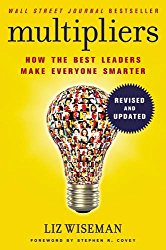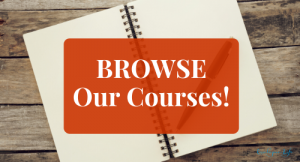
If you are writing your autobiography, life story, or memoir, it’s an insightful exercise to ask introspective questions: What are my talents? What are my strengths? What comes naturally to me? If you are writing someone else’s story, then you’ll want to get clear on what your main character’s strengths are. Some people call these gifts superpowers or even spiritual gifts. Regardless of the terminology, the goal of this article is to seed some questions and thoughts to help you explore your character’s strengths. Why? Because your talents are likely tied to the theme of your story. If it’s an autobiography, these talents may even relate to the purpose of your life.
Editor’s note: This article was adapted from one of our free weekly tutorials entitled: What are your superpowers? You’re welcome to watch the replay from that session here.
Related article: Story endings – the transformative power of storytelling
You are the hero of your story and you have talents.
The reason why talents and superpowers are such an important topic is that exploring them can lead to a clearer understanding of the theme in your story. By theme, I mean what your story is about. Not the plot points, but the journey of transformation that your character will undergo. In classic story structure, the protagonist will start out with flaws and will resist change, but ultimately decides to go on an adventure. The adventure results in growth. If you are writing your own story, then you are the hero and you definitely have superpowers to highlight. It’s true that you will also have some corresponding weaknesses.
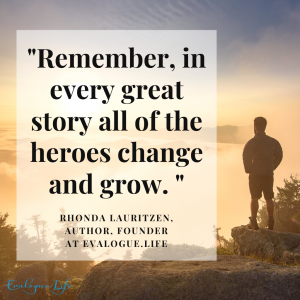
Related: What is the theme in writing your story?
What are your superpowers?
The idea of superpowers was originally introduced to me in the wonderful book, Multipliers, by Liz Wiseman. She writes that multipliers are people who bring out the best in others, not because others give more but because they become capable of more. Multipliers help others shine and flourish. They create an environment where other people grow and can become their best.
(Disclaimer: If you purchase a book we recommend using one of our links, we make a small commission on Amazon. It’s a tiny part of our income, but it all helps and we appreciate it.)
Wiseman also says that multipliers are especially adept at spotting other people’s superpowers. Her take on superpowers is insightful. She describes the things that come easily and naturally to you but that other people find difficult.
She describes how in the workplace, a person might notice a special skill in someone and ask, “How do you do that?” The person with the skill might reply, “I don’t know. It’s easy. Can’t you do that?” And they say, “No, it’s amazing!” Maybe you’ve had that happen and sort of shrug it off because you’ve always been able to do it. It’s not a big deal to you. You may never have thought of it as a superpower because you naturally do well.
But you know what? It is not only okay but it is absolutely important to honor your unique gifts. You can do this by recognizing them and developing them. That is why this article aims to get you thinking about talents that you do well and that do not come easily to others. These talents make a special contribution to this world, and you would be robbing humanity to not let them shine out of a noble but ultimately misplaced sense of modesty.
Related article: Are you a multiplier or diminisher?
Highlighting your hero’s strengths will inspire others
If you feel uncomfortable addressing talents in your own life story, take heart for two reasons. The first is that you’ll also need enough humility to be real about your weaknesses. These flaws are likely the flip side of your talents, just taken to an extreme. The second reason to be brave and describe your own strengths is that it will inspire others. The most important audience for your story may be your family, and when they read your story it will help them understand themselves. When they see strengths in you, it may help them spot talents in the shared bloodline or family culture.
Seeing others’ superpowers through the storytelling process
One of the things I didn’t realize when I started interviewing people professionally or writing life stories was that when they tell me their stories, I see their talents clearly. When I do, I can reflect what I see back to them. It is like I am holding up a mirror and I get to say, “Do you see what I see in you? I’ve noticed that you’re really good at this. It’s amazing and it lights up other people.” Very often when I notice those talents, the other person may not have fully recognized it in themselves. This is one reason that oral history interviews are so powerful. Namely, that oral history is a shared experience between the teller and the listener, and both are better for it. It is a symbiotic exchange and the process changes both parties. Truly, it is a profound privilege every time I get to hear someone’s story.
Related article – Oral history: the easiest, most rewarding way to finish a life story.
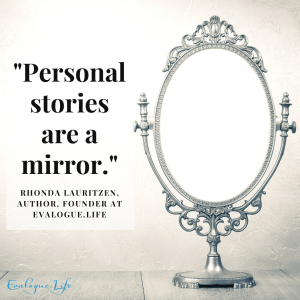
The joy does not end with the interview or with writing the story. When the listener or writer points out a superpower, it reinforces that trait in the other person and they grow and flourish in a way that they may not have without telling their story. It’s this really wonderful process.
This phenomenon is one of the reasons I wanted to teach this topic. Namely, that I have come to believe that when you tell your story, it changes the ending.
In other words, it is my hope that as you tell your story, you’ll start to say, “Oh my goodness, I’m good at that. I have a talent here that maybe I didn’t realize.” Then because you’ve seen it in terms of your story, you’ll start telling that story back to yourself, reinforce it, and grow that talent even more.
What is your talent? Maybe you should ask instead, What’s your nemesis?
Here’s another fun question related to your superpower: What’s your nemesis? With every gift, there’s a flip side. With every talent, there’s usually an opposite side of the coin and they’re almost always the same dang thing. It’s just that one side is a strength and one side is the strength taken to an extreme, and it becomes a weakness.
Alternatively, you might have a weakness that has become a strength. So I like to encourage people to think about the flip side of strengths and weaknesses when they are working on their stories.
That’s why I ask the question, what or who is your nemesis? This is fun imagery because in every superhero story the thing that makes the hero the greatest is the nemesis. The better the nemesis, the stronger the hero. They are often like alter-ego versions of each other. So this is a writing tip technique: Give your hero a worthy nemesis. Give your hero a challenge that’s worthy of the hero. Oftentimes as we’re writing about our stories, we may be tempted to tone it down when we share stories about hard things. But the harder the challenge in the story, the greater the hero’s triumph at the end.
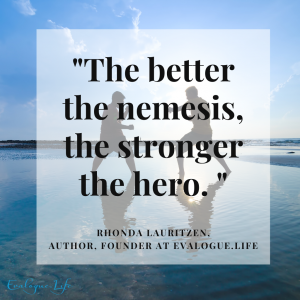
Character arc: Weaknesses becoming strong
When we talk about character arc, one of the images I like is that of a bow and arrow. When you draw an arrow back the farthest and release it, it will soar the highest. Then your character soars – that is what we mean by “arc” in the story. And by drawing the arrow back, I mean that you draw back the character to show the hardest possible challenge or the state of needing the most growth.
Related: The hard stuff. How do we overcome it and then write about it?
You may also be hesitant to write in your biggest flaws, the things that need fixing or that make yourself look bad at the beginning of the story. But if you’re willing to draw the bow back to the place of the most growth needed, it will be the very most satisfying when the arc continues. If you do your job writing, the ending will show your character in a place of transformation and that is what readers want to see.
So don’t be afraid to give your character a difficult challenge. Some big flaws in the end or a really bad nemesis. In Hollywood they have an adage: Make the bad guys badder. In life stories we may not want to write our loved ones as bad guys, so proceed with caution here. So maybe your nemesis isn’t a bad person. It might be an idea or a physical ailment. It might be cancer. It might be depression or some other demon that you face inside.
Who is your sidekick?
Also, here’s another fun question: Who is your sidekick? Every superhero needs a great sidekick, so give that some thought. In what way does the sidekick make up for some of the hero’s flaws? If you have never written about your sidekick, maybe that would be a great writing challenge. Spend 20 minutes just writing about your sidekick. What are that person’s strengths? In what ways has your best friend brought out the best in you or taught you? Who has been there for you in your darkest hour? That can be a poignant place to explore. If you haven’t, I challenge you to give your sidekick some credit in your story.

Related: Story structure – strengthen any story with these tips and examples
When do you feel most alive?
Here’s another question about your superpowers: When do you feel most alive? This is another clue to your strengths and unique personality.
When do you fulfill your purpose?
Another line of questioning related to your talents is, when do you fulfill your purpose? Or let me phrase it a different way. You could say, “I fulfill my purpose when…”
Years ago I attended a class and someone asked that question. They handed out three by five cards and asked us to fill in the blank, “I fulfill my purpose when…” I ended up tacking that card to my office wall for a long time. It said, “I fulfill my purpose when I’m helping other people fulfill theirs.” Interestingly I was working at a Technical College at the time and my job was helping students fulfill their purpose through student services administration. Now I’m in a totally different line of work but that over-arching purpose hasn’t changed. Today I help people write their stories and discover their strengths, and I teach people to write and to run thriving life story businesses.
Related: What is your purpose?
“My purpose is to know God.”
Here’s another thought about purpose, namely to know the difference between purpose and vocation. Many of us get too caught up in our work – I’m so guilty! But lately, I’ve been internalizing this thought: My work is not my purpose. As much as I consider my purpose to help others, I could do that in many different ways. I could do that in different locations, in different environments. That doesn’t change who I am. If my business failed tomorrow, would I be a failure as a human being? No! Of course not! And neither would you, if you did something that didn’t pan out.
I’ve mentioned author Rob Gentile in other articles. He’s dear to me as a client and is now a great friend. There was a moment in his book, Quarks of Light, A Near-Death-Experience. What I saw when I opened my heart. that taught me an important lesson. He was having a conversation with one of the physicians who saved his life.
He was thanking Dr. Bajwa, who is a very spiritual, beautiful man. Rob said something along the lines of, “It’s so wonderful that you’re doing this work that is your purpose.” And Dr. Bajwa stopped him and said in essence, “No, you’ve got something wrong. Medicine is not my purpose. Medicine is my vocation. My purpose is to know God.”
I liked that. His answer was a much deeper and more whole and beautiful way of thinking about our purpose. So if you’re caught up in a job that may feel less than fulfilling, if the daily grind feels mundane, look – we all have to make a living, right? Or maybe you’re too obsessed with work. Just breathe and remember that our profession might be a calling but it is not our deepest purpose. Maybe we’re just here on this Earth to learn how to selflessly help others. To add a little bit more light to the world. To do something to help another person shine and grow.
Ask: What are my talents?
So in summary, ask yourself, What are my talents? What are my strengths? What is my spiritual gift? Your superpowers may be related to the recurring themes in your story. What are lessons you’ve had to learn again and again? I hope this article has provided thoughts and questions to prompt self-discovery. May you find your own superpowers and feel empowered knowing that you are unique and wonderful. You have gifts to offer this world that nobody else can. The things that come easy to you may be more special than you realize. So give that some thought and search for your superpowers.

Rhonda Lauritzen is the founder and an author at Evalogue.Life – Tell Your Story. Rhonda lives to hear and write about people’s lives. She believes that when you tell your story, it changes the ending., She and her husband Milan restored an 1890 Victorian in Ogden. She especially enjoys unplugging in nature. Check out her books: How to Storyboard, and Every Essential Element. Most recently she was the writing coach of bestselling author, Rob A. Gentile, who wrote Quarks of Light, A Near-Death Experience: What I Saw That Opened My Heart

